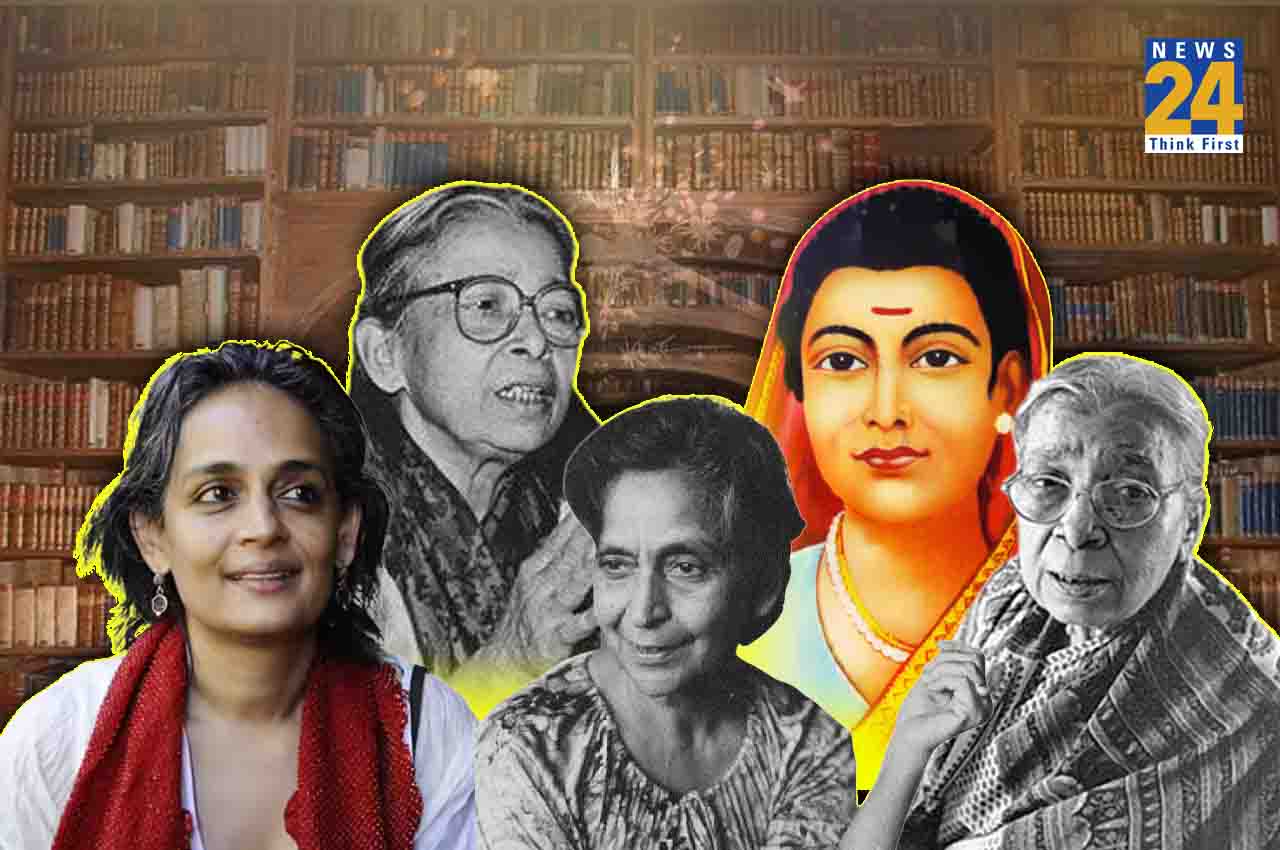Savitribai Phule
“Educate your daughter before myying her off so she can understand diferrence between good and bad,” said Savitibai Phule who, throughout er life, stressed upon the acdemics of women. Phule strongly felt the necessaity of teaching woman so they can find regonition among the society dominated by the man only.
Going against the stereotypes in his house and society, Jyotiba Phule used to teach his wife initially but later admitted her to a teacher’s training centre. After the training, Savitribai started teaching girls at Maharwada to become the first female teacher in India.
One more challenge in Savitribai’s life journey was her backward caste. She born in a family of Mali community. She had said,”Brahmanism is not just a mentality, it is a whole system. Through which, the core elements of religion – deities, customs, worship, etc. – keep the poor Dalit people under control and close all the paths of their progress and push them into a miserable life.”
“Brahmanism is not just a mentality, it is a whole system. Through which, the core elements of religion – deities, customs, worship, etc. – keep the poor Dalit people under control and close all the paths of their progress and push them into a miserable life.”
“The Plight of the Shudras”, “Go, Get Education”, “Rise, to learn and act” and “The Greatest Wealth” are some of the famous poems by the lady.
Amrita Pritam
“Main tenu phir milangi – kahan, kaise, pata nahi. Shayad teri kalpanao ki prerna bankar tere canvas par uthrangi par me tenu phir milangi.” With this promise to her love, Amrita Pritam bid farewell to the world but not really. Every time you see a canvas empty and a lover alone, you cannot help but reminisise Amrita Pritam saying — Main tenu phir Milangi.
The India-Pakistan separation caused pain to everyone who had make choices to pick either of side of the border. Amrita Pritam was also one of them who expressed her grief with “Ajj akhaan Waris Shah nu”. In this set, Pritam grieved about the violence and horror related to the partition.
She was a novelist, essayist and poet who chose to move India during Independence.
Arundhati Roy
She believes in voicing out her thoughts against violence that landed her to one-day symbolic sentence in prison. In 2022, Roy was convicted for alleging that the Supreme Court tried to silence projects against the Narmada Dam Project.
Roy was born in Shillong, Meghalaya but she was brought up in Kerala’s Aymanam. In her semi-autobiographical book called The God of Small Things in 1992, she described her childhood in Aymanam. She unfolded an era in her book when the people were the captives of Communism, the caste system, and the Keralite Syrian Christian way of life.
Arundhati Roy also condemned the government for carrying out the India’s testing of nuclear weapons in Pokhran, Rajasthan in her essay called The End of Imagination.
Roy married a film maker who had casted a huge influence of cinema on her. After which, she acted in a film called Massey Sahib that depicted a humble rural Inida in a British rule era.
Mahashweta Devi
Mahashweta Devi dedicated crucial years of her life to a thought that there should be equality everywhere. She spent three decades among tribals; listening and experiencing their plight of having no drop of water in the drought-hit area while there was plenty of water in the houses of upper class men.
Devi was even named — ‘The Mother of the Sabar’ — as she had extensively worked fot the Sabar tribe. Being a journalist or benevolent to the people of oppressed class, Devi always raised her voice against the police and administration to bring justice to her people.
She even wrote a fiction called Draupadi in which she tells the saga of a
Naxalite movement
Mahashweta Devi, was born in Dhaka, Bangladesh in January 14 in 1926 but she moved to India while the time of partition. She was awarded with the literary awards including Ramon Magsaysay Award, Sahitya Akademi Award, Jnanpith Award.
Not only this but Devi’s fight for the social upliftment brought her Padma Shri and Padma Vibhushan.
Leela Majumdar
Her autobiographical sketch ‘Pokandi’ tells how she managed to balance her family and professional life. Leela Majumdar’s career started after her marriage.
Majumdar was a versatile writer who gained fame with Din Dupure (1948) which was her second book. People still remember her for the humor she used to put in her books to make them interesting. Majumdar also wrote detective fiction, stories of the supernatural and fantasy.
The Bengali writer is more than she could ever be described in words. She wrote a biography of Rabindranath Tagore and a translation of Swift and Hemingway in Bengali.
Podi Pishir Bormi Baksho was her best book and a famous director Satyajit Ray intended to made a film adaption of the book but the project did not start. People must know that Ray and Leela Majumdar belonged to the same Ray family that was founded by Upendra Kishore Roy Chaudhuri.
Sandesh, was a magazine that Chaudhuri founded in 1913. Leela published her story — Lakkhichhara — in Chaudhuri’s magazine, who was Uncle to Leela.










